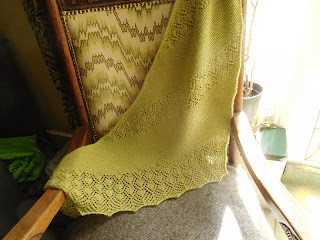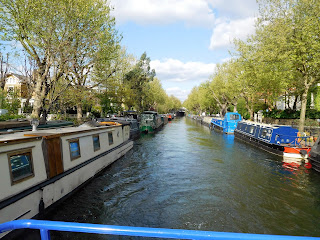This last week I've enjoyed two quite different books set on sheep farms. Now, I reckon to know a bit about sheep-farming, since I spent my childhood on a farm on the edge of the Cumbrian fells with an ancestral flock and a grazing right. But time passes, and it is all of fifty years since I left that farm. A lot of change can happen in fifty years - and this is what these two books deal with - change and its impact on rural lives.
"Towards Mellbreak" by Marie-Elsa Bragg is a curious book, half novel, half prose poem. What it is certainly is a tragedy, which deepens as the story goes on. The book is set on Ard Farm, starting in 1971. The writer moves between her characters, depicting an ancient way of life in which the turning of the year is marked by ancient traditions and by church attendance, more significant to some of the characters than to others.
Although this is a remote valley, the outside world is present to the characters. A brother has served as a missionary in China; his ancient letters are stored as treasures and gifted to chosen individuals.
Soon the menfolk are discussing government initiatives, all of which are seen as ill-thought out and intrusive. It becomes clear that no good will come of it. Sheep dip starts off benign and becomes a major player. As the inevitable descent happens, so the pathos increases.
Quite different in tone is "Addlands" by Tom Bullough, a novel set in the ancient county of Radnorshire in the Welsh Marches. This covers a seventy year period from 1941 onwards, the lifetime of the central character, born and raised on a sheep farm, although not conceived there. One of the features of the book is the interrelatedness - everyone is your second cousin here.
This is a much more rollicking read, but with real depth to the local knowledge in the narrative. The writer does not confine his use of dialect words to the dialogue - local words occur naturally in the narration. Bullough's characters are not saints to whom awful things happen, they are people who make mulish choices, choices which have lasting consequences for them and others, but which they refuse to regret.
Change happens in Bullough's book too, but not always for the worse. The passage on how the annual ordeal of hay-making was no loss was particularly telling. But this is a comedy, so when the farmer decides to spare his mother the chore of washing at a wash-tub, he is too mean to buy the washing machine and ends up with a dish washer, because it was cheaper. She appears not to know the difference.
Bullough pulls no punches, and neither does his central character. This is farming red in tooth and claw. But he also does not flinch from the sex lives of his people, where humour replaces what could have been tragic.
It was a great reading week.
"Towards Mellbreak" by Marie-Elsa Bragg is a curious book, half novel, half prose poem. What it is certainly is a tragedy, which deepens as the story goes on. The book is set on Ard Farm, starting in 1971. The writer moves between her characters, depicting an ancient way of life in which the turning of the year is marked by ancient traditions and by church attendance, more significant to some of the characters than to others.
Although this is a remote valley, the outside world is present to the characters. A brother has served as a missionary in China; his ancient letters are stored as treasures and gifted to chosen individuals.
Soon the menfolk are discussing government initiatives, all of which are seen as ill-thought out and intrusive. It becomes clear that no good will come of it. Sheep dip starts off benign and becomes a major player. As the inevitable descent happens, so the pathos increases.
Quite different in tone is "Addlands" by Tom Bullough, a novel set in the ancient county of Radnorshire in the Welsh Marches. This covers a seventy year period from 1941 onwards, the lifetime of the central character, born and raised on a sheep farm, although not conceived there. One of the features of the book is the interrelatedness - everyone is your second cousin here.
This is a much more rollicking read, but with real depth to the local knowledge in the narrative. The writer does not confine his use of dialect words to the dialogue - local words occur naturally in the narration. Bullough's characters are not saints to whom awful things happen, they are people who make mulish choices, choices which have lasting consequences for them and others, but which they refuse to regret.
Change happens in Bullough's book too, but not always for the worse. The passage on how the annual ordeal of hay-making was no loss was particularly telling. But this is a comedy, so when the farmer decides to spare his mother the chore of washing at a wash-tub, he is too mean to buy the washing machine and ends up with a dish washer, because it was cheaper. She appears not to know the difference.
Bullough pulls no punches, and neither does his central character. This is farming red in tooth and claw. But he also does not flinch from the sex lives of his people, where humour replaces what could have been tragic.
It was a great reading week.
























.JPG)